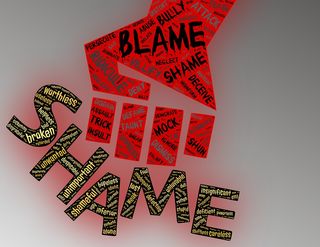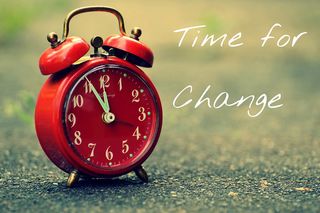Confidence
The Civility Deficit
Without a return to civility, “free society” will likely erode and disappear..
Posted September 20, 2019

Co-authored by George S. Everly, Jr., PhD, ABPP, The Johns Hopkins University; Andrea N. Everly, Harvard University; and Gina Brelesky, MPA, M.Ed., Private Practice
By most accounts, it would appear our society is challenged. Economics, immigration, violence, healthcare, and even the national debt appear to be challenging the current vibrancy and future well-being of our society. We believe the intensity of these challenges is made worse, while the likelihood of finding resolutions is greatly diminished, largely because of what we shall refer to as the civility deficit.
What Is Civility?
Civility may be defined as politeness, courtesy, and respect. The term civility is derived from the Latin civilitas and gives rise to the term civilization. Civilization, in turn, is that essential process by which humanity transcends ignorance, resolves conflict, and reaches its most advanced stages. Indeed, social anthropologists have long argued that the key to human survival in the pre-historic eras, when the environment was extraordinarily hostile, was the ability to cooperate socially and to collaborate in task related groups.
In 2019, Weber Shandwick and Powell Tate, in partnership with KRC Research, released the results of their ninth Civility in America survey to assess America’s attitudes of and experiences with incivility. According to Andy Polansky, Weber Shandwick CEO, “It has never been more important to understand the sources and impact of America’s eroding state of public discourse.”
The Civility Deficit Threatens the Workplace
Currently, it may be argued that many of the most desirable places to live, regardless of geography, are characterized by a civil and cooperative populace. The best places to work are respectful and cooperative. Most of the greatest discoveries in the history of humankind have been made through collaboration.
Concern, therefore, is aroused as according to the December 2016 McKinsey Quarterly Report nearly half of those surveyed in 1998 reported they were treated rudely at least once a month, a figure which rose to 55 percent in 2011 and 62 percent in 2016. According to Porath and Pearson (2010):
- 78 percent of people who experience uncivil behavior from their co-workers become less committed to the organization; and, 16% of those treated poorly on the job indicated they had left previous jobs due to a lack of civility at work
- 66 percent of those treated poorly suffer a decline in overall performance
- 47 percent exposed to uncivil actions deliberately spend less time at work
- 25 percent treated poorly take their frustrations out on customers.
The Civility Deficit Contaminates the Flow of Useful Information
Accurate and timely information is the backbone of any free society. Such information is the moral obligation of elected officials as well as news outlets. The civility deficit threatens this essential process. It threatens the perceived accuracy and even the perceived motivation of politicians and information outlets alike. It turns a political debate into a mean-spirited rhetorical brawl and reportage into agenda-driven commentary.
According to the Gallup 2019 Confidence in Institutions Poll, 48 percent of people have either “very little” or no confidence in television news, compared to only 18 percent in 1993. Confidence in newspapers has also dipped, as 39 percent said they had “very little” or no confidence in newspapers in 2019 compared to only 17 percent as recently as 2003.Overall, TV News (18%), Newspapers (23%), and the US Congress (11%) had the lowest positive rankings of all institutions. DePauw University professor Jeffrey McCall asserts that “decline in trust of the media is troubling” because a functioning republic requires citizens who are informed and have sufficient, accurate news on which to base self-governance decisions.” “Today, the media has lost sight of its obligation and instead too often fills the news hole with sensational, poorly sourced and/or agenda-driven content," McCall said.

How to Restore Civility
We can work to restore civility on three levels.
On the interpersonal level:
- Reach out and engage those with differing points of view.
- Listen respectfully to their positions.
- Employ “perspective-taking.” Switch roles momentarily and try to understand the bases for the other’s viewpoints. Try to see and understand the world through their eyes.
- Respectfully offer your viewpoints and encourage them to do the same perspective-taking.
- Do not tolerate incivility and bullying on social media.
On the societal level:
- Hold elected officials politically accountable for incivility.
- Hold the media accountable. Vote with your viewership and let advertisers know you will not support incivility.
Organizationally:
- When applying for jobs, look for civil trustworthy employers, perhaps those who contribute to civilization as well as their own profitability.
- Do not tolerate bad behavior, bullying, management by intimidation, or a generally abusive workplace, once hired.
- Incivility should be viewed as a sign of incompetence.
- Leadership can choose to create an organizational culture wherein incivility becomes counter-cultural and unacceptable. Or they can choose not to, which speaks volumes.
We have found that price of entry for a leadership role is self-awareness. Self-awareness is the foundation of social and emotional intelligence.
The rise and ultimate success of any free society is firmly based upon civility. The absence of civility (the civility deficit) portends the absence of civilization and perhaps the end of a “free society,” as we understand them. Only with civility can humanity live together and thrive. Only with civility can a community be resilient in the wake of adversity and disaster. In the final analysis, our mantra to our children and ourselves should be “Be respectful, work hard at everything you do, be kind to others and yourself!”
©The Authors, 2019.
References
Porath, C.L. and Pearson, C.M. (2010). The cost of bad behavior, Organizational Dynamics, 39, (1) 64-71.




